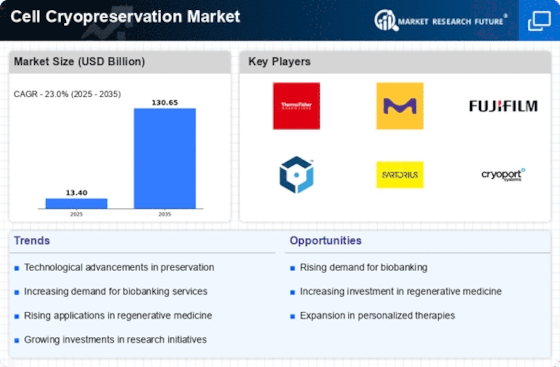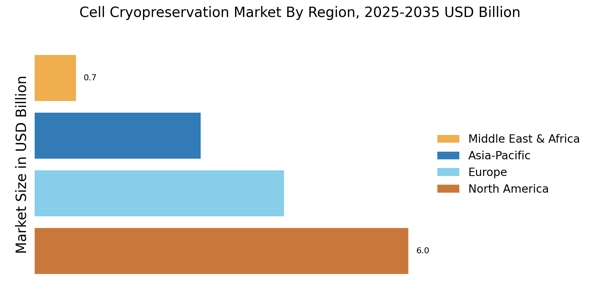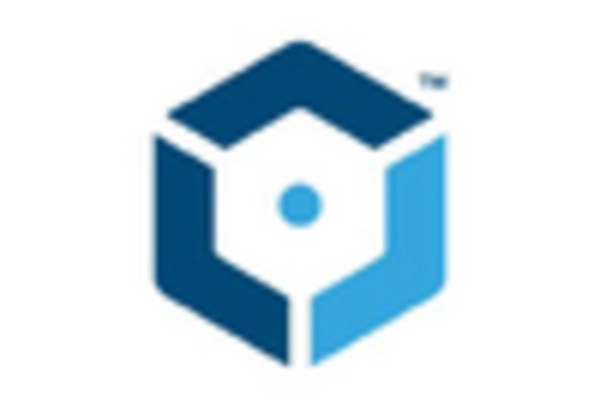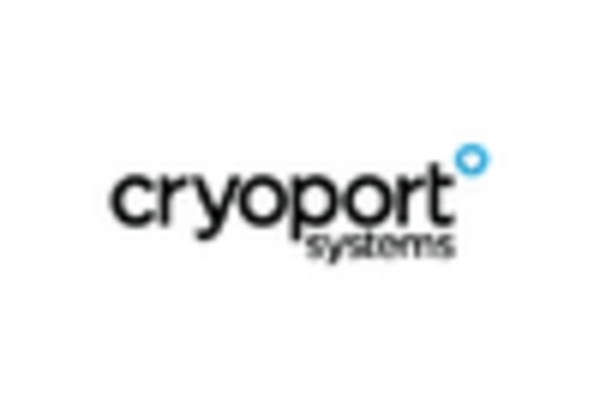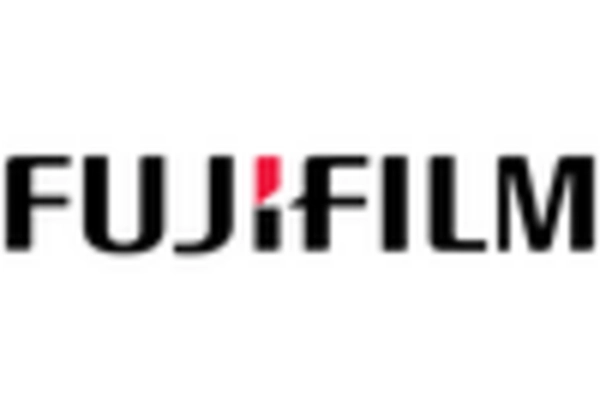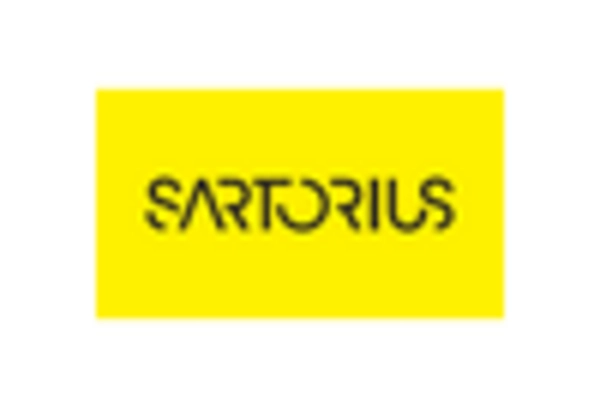Growth in Biobanking Initiatives
The Cell Cryopreservation Market is significantly influenced by the expansion of biobanking initiatives across various sectors, including healthcare and research. Biobanks serve as repositories for biological samples, and the preservation of these samples through cryopreservation is essential for ensuring their integrity over time. The biobanking market is anticipated to grow at a compound annual growth rate (CAGR) of around 6% through the next few years. This growth is attributed to the increasing need for personalized medicine and the rising prevalence of chronic diseases, which necessitate the collection and storage of biological materials. As biobanks proliferate, the demand for advanced cryopreservation solutions within the Cell Cryopreservation Market is expected to rise correspondingly.
Rising Demand for Stem Cell Research
The Cell Cryopreservation Market is experiencing a notable surge in demand due to the increasing focus on stem cell research. As researchers and healthcare professionals explore the therapeutic potential of stem cells, the need for effective preservation methods becomes paramount. The market for stem cell therapies is projected to reach approximately USD 20 billion by 2026, indicating a robust growth trajectory. This demand is driven by advancements in regenerative medicine, where cryopreservation plays a critical role in maintaining the viability of stem cells for future applications. Consequently, the Cell Cryopreservation Market is likely to benefit from this trend, as more institutions invest in cryopreservation technologies to support their research and clinical endeavors.
Advancements in Cryopreservation Techniques
The Cell Cryopreservation Market is poised for growth due to ongoing advancements in cryopreservation techniques. Innovations such as vitrification and the development of novel cryoprotectants are enhancing the efficiency and effectiveness of cell preservation. These advancements not only improve cell survival rates post-thaw but also expand the range of cell types that can be preserved. The market for cryopreservation equipment and consumables is projected to witness a significant increase, with estimates suggesting a growth rate of approximately 8% annually. As researchers and clinicians seek to optimize their preservation methods, the Cell Cryopreservation Market stands to gain from these technological improvements, which are likely to enhance the overall quality of preserved biological materials.
Increasing Investment in Regenerative Medicine
The Cell Cryopreservation Market is benefiting from the rising investment in regenerative medicine, which encompasses therapies aimed at repairing or replacing damaged tissues and organs. As the field matures, the need for reliable cryopreservation methods becomes increasingly critical. The regenerative medicine market is expected to reach USD 100 billion by 2025, driven by the growing prevalence of degenerative diseases and the aging population. This influx of investment is likely to spur demand for cryopreservation services and technologies, as researchers and companies seek to ensure the viability of cells and tissues for therapeutic applications. Consequently, the Cell Cryopreservation Market is positioned to capitalize on this trend, as it plays a vital role in the success of regenerative medicine initiatives.
Regulatory Support for Cell Preservation Technologies
The Cell Cryopreservation Market is experiencing favorable conditions due to increasing regulatory support for cell preservation technologies. Regulatory bodies are recognizing the importance of cryopreservation in ensuring the safety and efficacy of cellular therapies. This support is reflected in the establishment of guidelines and frameworks that facilitate the development and commercialization of cryopreservation solutions. As regulations become more conducive to innovation, companies within the Cell Cryopreservation Market are likely to benefit from enhanced opportunities for product development and market entry. This regulatory environment not only encourages investment but also fosters collaboration between industry stakeholders, further propelling the growth of the Cell Cryopreservation Market.


